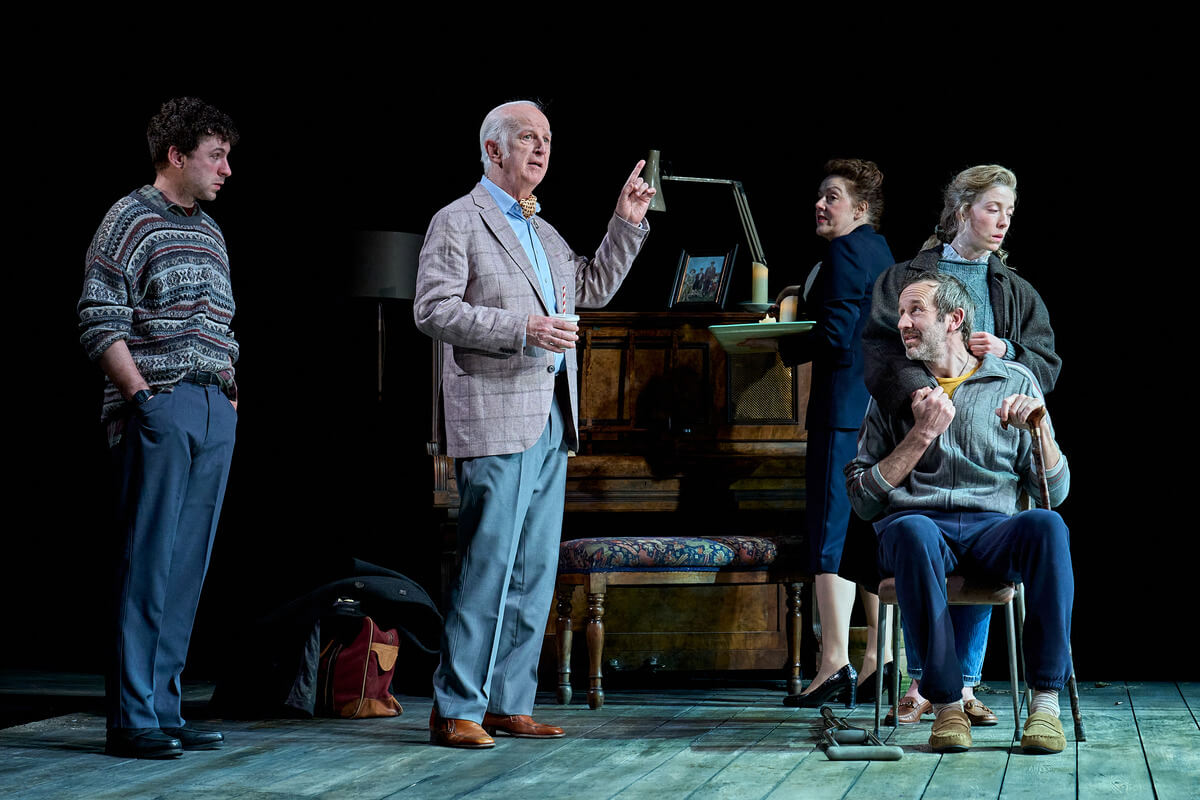
Josephine Balfour-Oatts catches cast member Debbie Chazen for a quick chat between rehearsals for RAGS The Musical ahead of its London transfer.
Debbie Chazen is positively effervescent. She calls, bubbling over with breathless greetings, having just emerged from the rehearsal room. As part of the cast for RAGS The Musical (which is due to begin its month-long run at London’s Park Theatre, having transferred from The Hope Mill last year), the team are preparing doggedly for opening night. This a tale of displacement, but of hope: one that follows a group of Jewish immigrants as they travel from Russia to the United States at the time of the twentieth century. I manage to catch Chazen on her lunchbreak. Her excitement is palpable – she enthuses over her character, Anna, wife of Jack (played by Jeremy Rose), who run a sweat-shop together from their tenement in New York.
“She spends her days sewing, she’s a woman of faith – that’s her life, really.” Chazen coos, “She’s got a big heart, she welcomes everyone.” Slowly, their dwelling begins to fill with family having escaped from similar circumstances in Eastern Europe. Inevitably, suitcases play a large role in the production, a concept conjured by director Bronagh Lagan. Here, one’s life is carried as luggage. “As a refugee, that is your world. Your suitcase is your home wherever you go.” Chazen adds, wistfully. The cast work with a multi-purpose set throughout, one designed around this most important of props. “Suitcases become drawers, a boat…it’s a very strong image.” Chazen explains. Also featuring tubercular screens, the scenery helps to channel a feeling of transformation, and of constant movement.
RAGS holds a particular resonance for Chazen. “I’m one of the few Jewish people in the cast” she says, now on the busy street outside. Waves of sediment lap at her end of the line, a patchy signal causing her sentences to become increasingly grainy. “I feel a slight responsibility in telling the story of my ancestors,” she continues, of her great-grandparent’s own journey from Lithuania to Liverpool, “it’s a very common tale for anyone who is third or fourth generation now.” It is through an eclectic tapestry of music that RAGS communicates the experiences of those onstage, in addition to mirroring the culture in New York at the time. “There is a huge ragtime influence, lovely Mediterranean-esque, romantic ballads, as well as Klezmer.” A musical tradition particular to the Ashkenazi Jews of Eastern Europe, the latter is emulated by way of a live band of four actor-musicians, with help from a violin, clarinet and accordion.
For Chazen, the medium of musical theatre suits RAGS perfectly – the score it seems, captures the epic nature of the piece. “You can say ‘I love you’, but when you sing ‘I love you’, [the words] suddenly become so much more.” She sighs. The intimacy of The Park also appears vital, adding to the sense of claustrophobia within the narrative. Undoubtedly, RAGS is a poignant tale for our times, not least because of the recent scandal surrounding the Labour Party in regards to anti-Semitism, but also in light of a certain political homelessness that has infected the UK as a result of the EU Referendum in 2016. “It’s a very human story.” Chazen says finally, “one that has affected us all in one way or another.”
RAGS The Musical runs at the Park Theatre from the 9th of January to the 8th of February 2020.




